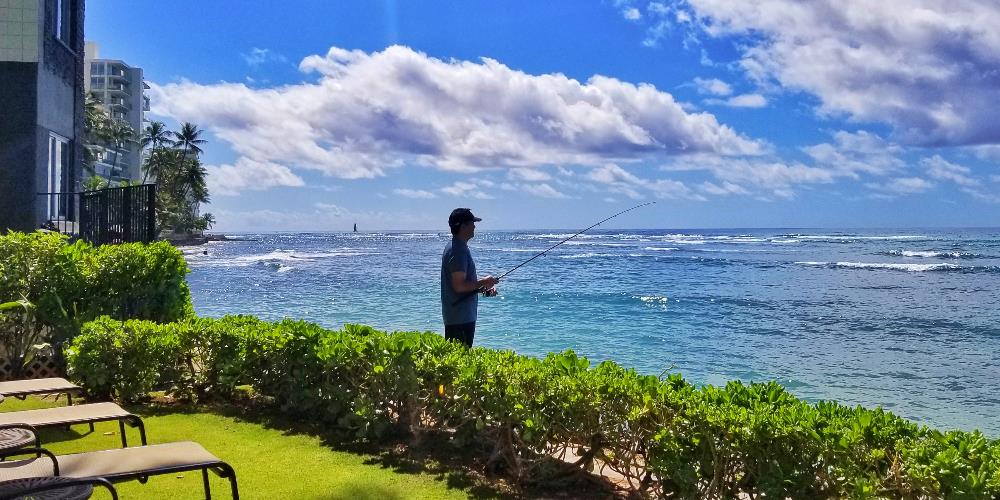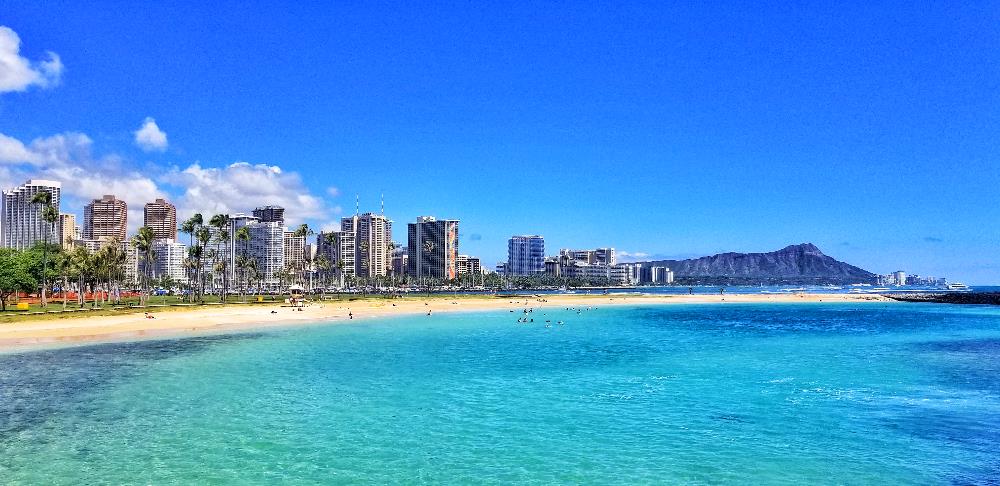— In today’s sharing economy with the popularity of Airbnb and VRBO, many are considering owning Hawaii real estate as a vacation getaway that pays for itself by renting it out.
If you are new to condotel investing and short-term vacation renting, then first start with our Guide to Condotels and Short-Term Vacation Renting.
See related article: Waikiki’s Condotel Reality – Cash Flow vs Lifestyle.
Condotels offer a unique dual benefit: a) maximum short-term vacation rental income, and b) maximum flexibility to enjoy it as your personal vacation getaway.

But be aware of the tax consequences when you mix an investment property with ‘personal use.’ The IRS considers your property either a ‘personal-use property’ or an ‘investment property,’ depending on the actual use of your property. And that affects the number of tax deductions you might be able to claim.
Let’s assume you bought a Waikiki condo or a Waikiki condotel. Here is how your tax benefits change for different uses:
1) Personal-use property – for your enjoyment
This is either a 2nd home or your vacation home and not an investment rental property. Personal enjoyment extends to you, your family members and friends.
For your personal-use property, the IRS allows only some limited deductions, e.g.: mortgage interest, property taxes, and mortgage points. – Restrictions apply. These limited expenses get itemized on Schedule A. Depreciation, maintenance, and repairs may not be deducted on your tax return.
See related article: Real Estate – Tax Benefits Guide
Btw, the IRS allows you to rent your ‘personal-use property’ for a short period of up to 14 days without reporting the rental income! Could it be fun to Airbnb rent your principal residence for 14 days while you are vacationing somewhere else?
2) Investment property – for the business of making money
The IRS treats owning investment rental properties as a business and allows a multitude of generous tax deductions. Deductions could include depreciation, mortgage interest, property taxes, HOA fees, utilities, insurance, marketing/advertising, maintenance, repairs, cleaning, management fees, etc.
Investment property expenses get reported on Schedule E and can offset the rental income. The total tax deductions could even exceed the rental income and generate a loss on paper. This ‘paper loss’ could reduce your overall tax liability! – This is where real estate investors like to operate and flourish.
See related article: Wealth Creation With Real Estate
But you need to make sure you don’t inadvertently lose your tax deductions when you use the property for some of your personal enjoyment.
Your investment property must pass two tests! Otherwise, the IRS considers your ‘investment property’ a ‘personal-use property’ and disqualifies many of the tax deductions.
Test 1: — Personal use of the investment property cannot exceed 14 days, or 10% of the number of days rented at fair market rent, whichever is greater. Personal-use days are days when you, your family and or friends use the property unless they pay fair market rent!
Test 2: — You must rent at fair market rent. Any ‘good tenant discount’ and or ‘family & friends discount’ cannot be greater than 20% of the fair market rent. 20% discount is the borderline danger zone. That’s why tax advisors typically recommend it is better you don’t discount beyond 10%. You should document fair market rent values in case you get audited.
See related article: Buying A Home For Your Kids! – Renting To Relatives
Applying both tests will clarify where you stand. It is best to decide on keeping your property within either of these two categories. ‘Personal use property’ deductions get itemized on Schedule A and ‘investment property’ gets reported on Schedule E.

What happens when you or your family and friends use your property for more than 14 days or 10% of the days the property is rented at fair market rent?
You will then need to proportionally allocate the mortgage interest and property taxes between ‘personal use’ on Schedule A and ‘rental use’ on Schedule E.
For any ‘personal use’ days, none of the rental expenses can be deducted. Any remaining rental expenses may be used to offset the rental income but can no longer generate a loss on Schedule E.
Splitting your property expenses on both Schedule A and Schedule E could also increase your chances to trigger an IRS audit! – No fun.
Conclusion:
Know the rules on how the IRS differentiates between a ‘personal use property’ versus an ‘investment property.’ Don’t blow it. You don’t want to be caught by surprise and lose all your tax deductions while your rental income is all taxable. Be clear on your personal-use days and always charge adequate fair market rent.
You must also file and pay the appropriate tax (GET/TAT/OTAT) on your Hawaii rental income. Late fees and interest accrue quickly and there is no statute of limitation for GET/TAT/OTAT audits.
See related article: GET, TAT & OTAT – The Easiest Way To File And Pay.
— With all tax matters, always check with your favorite qualified tax professional.
Let us know what you think. We love to hear from you. We are here to help.
Reciprocate Aloha! -‘Like’, ‘Share’, and ‘Comment’ below.
~ Mahalo & Aloha

My question is if you advertise for 365 days only get it rented 222 only actually use it seven days are you allowed to write off overhead the deductions for the days in between where no one rented it but you did advertise it thank you
Aloha Jackie!
Yes, however always check with your favorite qualified tax professional.
We are only real estate experts.
Call us when you are ready to buy or sell. 🙂
We are here to help.
~ Mahalo & Aloha